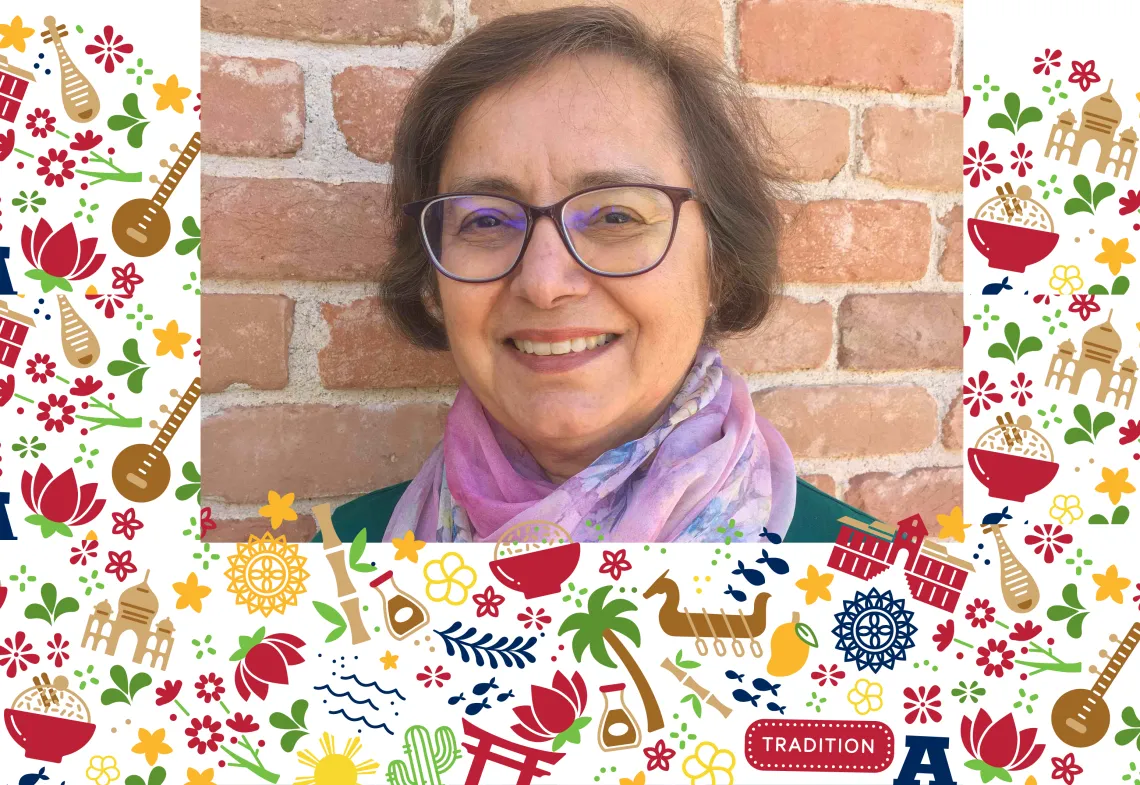Asian Pacific Islander Desi American Heritage Month Faculty Spotlight: Dr. Renu Malhotra

Dr. Renu Malhotra, Regents Professor and Louise Foucar Marshall Science Research Professor of Planetary Sciences.
The College of Science is celebrating Asian Pacific Islander Desi American (APIDA) Heritage Month with Dr. Renu Malhotra, a Regents Professor and Louise Foucar Marshall Science Research Professor in the Planetary Sciences department.
The College of Science spoke with Dr. Malhotra, a native of India to discuss her journey to the United States and the University of Arizona, her upbringing, and her favorite part about being a scientist.
Dr. Renu Malhotra
Regents Professor, Louise Foucar Marshall Science Research Professor
Planetary Sciences
College of Science: Tell us a little about yourself, your background and your journey to the University of Arizona.
Malhotra: I grew up in India and came to the US "as soon as I could", as the saying goes. My childhood was somewhat of a nomadic experience, living in quite diverse cultures and circumstances in north and south India. I was lucky to attend a good high school and a selective college, both in India. I took the academic path in the US, with graduate research leading to a PhD in Physics at Cornell University, followed by a post-doc at Caltech and a scientific staff position at the Lunar and Planetary Institute in Texas, before I joined the University of Arizona faculty in 2000.
COS: When looking back on your childhood and spending time with family, are there any favorite traditions or memories that stick out to you?
Malhotra: My parents were of modest means, luxuries were unknown, hard work and pitching-in was expected. I recall a couple of really rough years when there were severe food shortages and rationing, and I would accompany my mother to queue up for basic food items like flour, cooking oil and sugar. Being the oldest, I was responsible for helping my younger siblings get to school on time and helping them with homework, tasks not easily accomplished. I have vivid memories of one visit to the circus and one to a fair, and once to my father's workplace where I got to experience a mechanical aircraft simulator. Religious holidays were frequent and much fun and involved rituals at home that my siblings and I remember very fondly, but that I later found out were partly made-up by my parents, both of whom, as children, had been uprooted from their ancestral homes during the India-Pakistan partition in the late-1940s. I kind-of carry on the tradition of make-up rituals with my own children.
COS: Who are some of the people who have made the greatest impact on your life?
Malhotra: I would have to say my parents. My father for encouraging curiosity, my mother for her calmness and kindness and acceptance. One English teacher in high school who encouraged my unorthodox writing explorations and striving for perfection. One science teacher in middle school who punished me for non-compliance and questioning authority. Ayn Rand and Thomas Paine whose writings clarified for me the relationship between the human faculties of reason and emotion, and the morality and power of individual freedom and individual agency. Several mentors in graduate and post-doc years who believed in me - more than I myself did - and helped me grow and succeed professionally. My husband and my children who continue to remind me to cherish each day.
COS: What was it that drew you to your area of research and expertise?
Malhotra: Going into graduate studies, I had the simple idea that I wanted "to understand how nature works". By chance, I got an opportunity to do a summer project in nonlinear dynamics in the early days of chaos theory, which sparked my interest in that subject. And then, also by chance, I connected with a planetary scientist who became my PhD advisor and who channeled my mathematical proclivity towards nonlinear dynamics of planetary systems. I made a couple of notable contributions early on, and those small successes quickly felt like this research area "fit me", and "I was made for it".
COS: What is your favorite part of being a scientist?
Malhotra: My favorite part is making novel hypotheses to understand what's hidden beyond what's visible. Also identifying ways to test and falsify hypotheses and figuring out effective ways to reveal, visualize and communicate patterns in data. I also really enjoy writing, and re-writing, and editing again and again, which is a major part of being a scientist.

